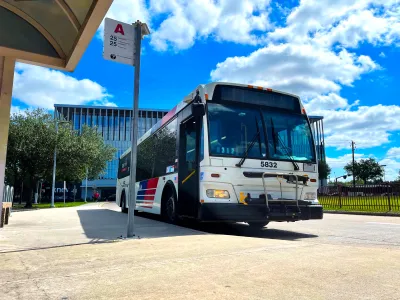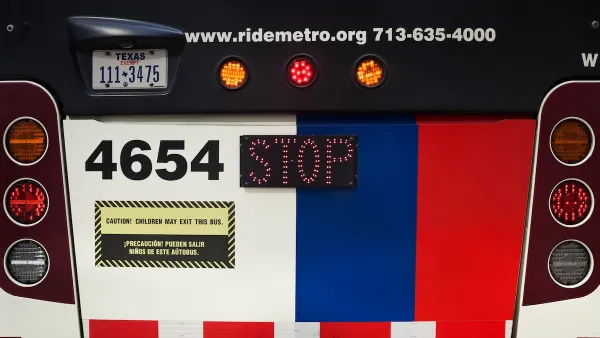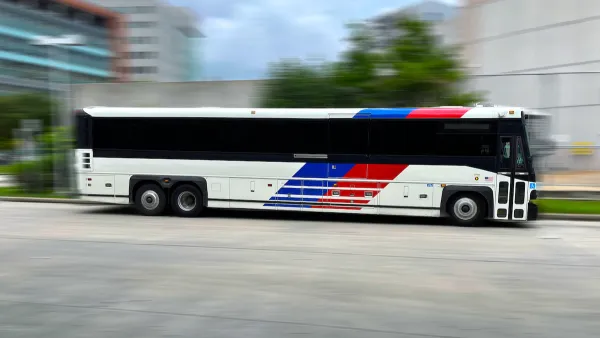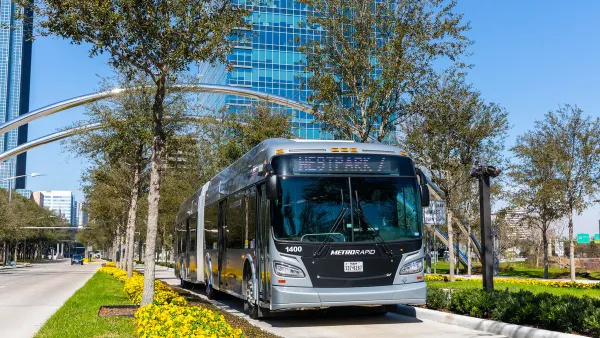Agency officials say they will continue to make expansion plans in the face of a potentially dramatic reduction in funding.

Despite a prediction that sales tax revenue in the Houston area will fall by as much as 10 percent in the next fiscal year, the region’s Metropolitan Transit Authority (Metro) says it will not let the reduced revenue impact its expansion plans, at least on paper.
As Dug Begley explains in the Houston Chronicle, “Metro bases its budget, which can hover around $1 billion for operations and capital projects annually, on predicted sales tax collections and other sources of revenue.” The prediction for next year signals an unprecedented drop in sales taxes for Metro and in the region.
But Metro Chairman Sanjay Ramabhadran “it is on us to plan.” The agency recently proposed round-the-clock service on some routes to make transit more accessible for workers with less traditional schedules. “Even if it occurs, a dip in sales taxes gives Metro time to react. The agency, which largely does not rely on fares for funding, unlike other large metro areas, has not had to slash services or find new funding when federal funds related to COVID dried up.”
FULL STORY: Metro weighing 10 percent drop in sales tax revenue, but won't slow expansion of service

National Parks Layoffs Will Cause Communities to Lose Billions
Thousands of essential park workers were laid off this week, just before the busy spring break season.

Retro-silient?: America’s First “Eco-burb,” The Woodlands Turns 50
A master-planned community north of Houston offers lessons on green infrastructure and resilient design, but falls short of its founder’s lofty affordability and walkability goals.

Delivering for America Plan Will Downgrade Mail Service in at Least 49.5 Percent of Zip Codes
Republican and Democrat lawmakers criticize the plan for its disproportionate negative impact on rural communities.

Test News Post 1
This is a summary

Test News Headline 46
Test for the image on the front page.

Balancing Bombs and Butterflies: How the National Guard Protects a Rare Species
The National Guard at Fort Indiantown Gap uses GIS technology and land management strategies to balance military training with conservation efforts, ensuring the survival of the rare eastern regal fritillary butterfly.
Urban Design for Planners 1: Software Tools
This six-course series explores essential urban design concepts using open source software and equips planners with the tools they need to participate fully in the urban design process.
Planning for Universal Design
Learn the tools for implementing Universal Design in planning regulations.
EMC Planning Group, Inc.
Planetizen
Planetizen
Mpact (formerly Rail~Volution)
Great Falls Development Authority, Inc.
HUDs Office of Policy Development and Research
NYU Wagner Graduate School of Public Service





























